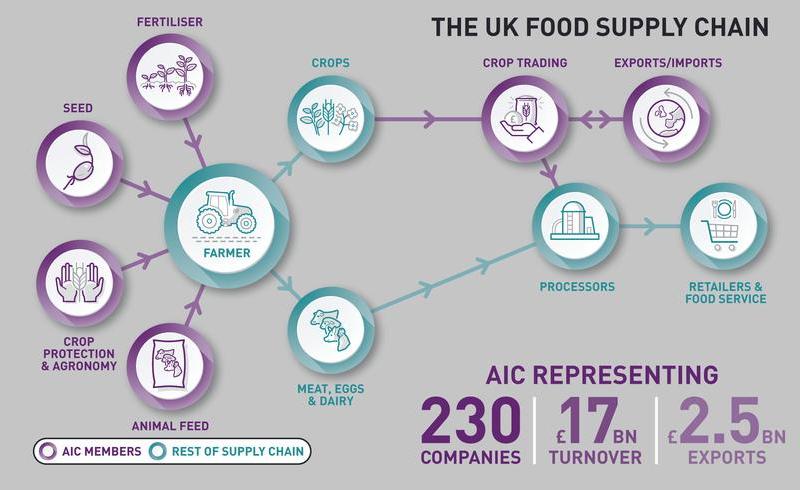AIC responds to Defra’s urea consultation with vision for improved Nitrogen Use Efficiency
The Agricultural Industries Confederation (AIC) believes that a ban on the sale and use of solid urea fertiliser is unwarranted. Instead, the agri-supply industry trade organisation has urged the Government to give the fertiliser sector the opportunity to reduce ammonia emissions through an industry-led commitment, based around the principles of Nitrogen Use Efficiency (NUE), which will involve demonstrating delivery through a combination of FACTS Qualified Advice and farm assurance auditing.
“This industry-led approach would have many advantages over banning a nitrogen source from use,” says Robert Sheasby, AIC’s Chief Executive. “With an end goal to achieve UK 2030 emissions targets, and mindful of all that livestock farmers will need to do on the manure management front, the fertiliser sector is stepping up to deliver its part in curbing ammonia emissions from urea-based fertilisers.”
AIC and partners across the industry and food chain have committed to improving farm nutrient balance (notably for nitrogen and phosphorus) and NUE by 2030.
The partnership has agreed on joint ambitions for training, and how to define the big Key Performance Indicators for nutrient management, benchmarking current performance, and targeting change. It will proactively support change for agronomic good, driving down ammonia emissions, improving water quality and meeting net zero targets.
“We recognise that all fertiliser sources have their pros and cons, and that farmers and growers need the right products, for the right weather conditions, at the right time. This is where the fertiliser sector and all professional advisers are best placed to help. By supporting farmers to improve their overall crop NUE it’s a win-win situation,” adds Mr Sheasby.
While the industry awaits Defra’s initial feedback on the urea consultation, AIC has requested that Ministers delay making any regulatory decisions affecting the use of solid urea on farms until the full recommendations of Defra’s Nutrient Management Expert Group have been thoroughly considered.
ENDS
About AIC
As the UK agricultural supply industry's leading trade association, the Agricultural Industries Confederation (AIC) represents businesses in key sectors within the supply chains that feed the nation.
Its Member businesses supply UK farmers and growers with the animal feed, fertiliser, seed, crop protection products, trusted advice and quality services that are essential to producing food, as well as trading crops and commodities across the globe.
Formed in October 2003 by a merger of three trade associations, today AIC has over 230 Members in the agri-supply trade and represents £17.8 billion* turnover at farmgate.
AIC works on behalf of its Members by lobbying policymakers and stakeholders, delivering information, providing trade assurance schemes, and offering technical support.

AIC Services manages a range of services, including Trade Assurance Schemes and professional registers recognised by the UK Government as essential means to underpin feed and food safety alongside fertiliser security.
These schemes and professional registers include:
- Trade Assurance Scheme for Combinable Crops (TASCC)
- Feed Materials Assurance Scheme (FEMAS)
- Universal Feed Assurance Scheme (UFAS)
- European Seed Treatment Assurance (ESTA)
- Fertiliser Industry Assurance Scheme (FIAS)
- Feed Adviser Register (FAR)
- Renewable Energy Directive (RED)
- Forage Assurance Scheme (FAA)
- AIC Services Palm Oil Credit Scheme (APOCS)
*According to a 2023 survey of AIC Members.
Press Contact
Wendy Ford, Communications Manager, AIC
+44 (0)1733 385230
[email protected]

